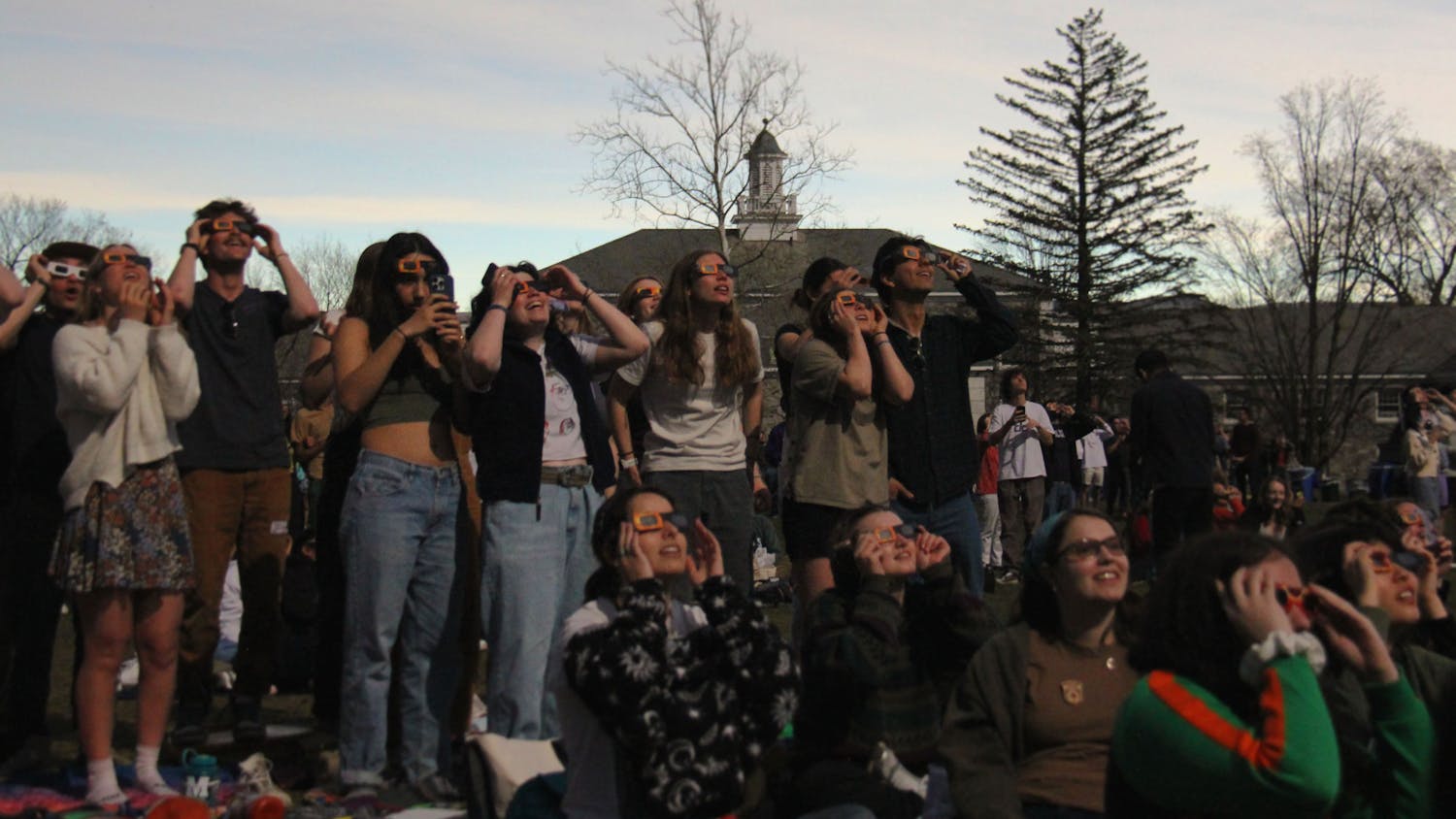Author: Caroline Stauffer
United States Presidential hopeful Lyndon LaRouche spoke on Friday at Middlebury College as part of a series sponsored by the College Democrats.
The 2004 election marks the 80-year-old's eighth bid for the presidency.
Leaders of the College Democrats said they hoped to ignite political discourse on campus by hosting a more controversial speaker, following earlier visits by representatives of the Howard Dean and John Kerry campaigns.
"The goal in bringing LaRouche to campus was to stimulate political discussion on this somewhat politically apathetic campus and eventually increase political participation and awareness," College Democrats co-chair Jon Brand '05.5 said.
Indeed, the club's decision to host LaRouche certainly came under fire.
The announcement of LaRouche's invitation drew several e-mails from alumni and objections by students and professors.
"We knew that he was a controversial candidate, but we were not fully prepared for some of the backlash that we received via alumni e-mails," Brand said.
An atmosphere of nervous anticipation surrounded Chateu Grand Salon prior to LaRouche's speech. Some students sat holding newspaper clippings eagerly awaiting the opportunity to question LaRouche on some of his policy stances, while campaign supporters were positioned around the perimeter, surveying the audience. Both campaign literature and anti-LaRouche flyers were circulating through the small room, which was filled to capacity.
According to College Democrats co-chair Laura Kelly '06 the presentation was "all on his [LaRouche's] budget."
Kelly opened the event by introducing Bruce Marshall, who had put the group in touch with the LaRouche campaign.
"The lecture does not reflect the beliefs of the College Democrats," Kelly said. She also explained that the forum following LaRouche's speech would be moderated by having the audience write questions on index cards instead of moving directly to open dialogue.
Marshall began by pointing out that Middlebury College was the first institution in the nation to call for the abolition of slavery, which demonstrates "a historically significant message of fair play," he said.
He continued the slavery metaphor by suggesting that the state of modern politics could be interpreted as "slavery against the mind."
"The life passion of LaRouche," he said, "was to remedy these evils."
LaRouche's speech focused mainly on the "unnecessary war" with Iraq and what he called an "economic crisis."
LaRouche claimed U.S. involvement in Iraq was "designed by civilian nuts who don't know what they are doing." The entire operation, he said, is "under the grip of the Vice President [Dick Cheney]," who he called a neo-conservative with imperialist designs for the United States.
LaRouche's second point was that the United States is in an economic crisis comparable to the situations in 1928 and 1933. He cited 1963 as the height of American economic power, but since then, he said, "we have destroyed our society and our culture."
"We are bankrupt," he proclaimed. LaRouche blames the current state of affairs on "post-industrial society," a non-productive "40 years of folly."
He also drew widely on historical examples throughout his talk, likening the United States' current position to that of Greece after the Peloponnesian War.
LaRouche's final point was that "informed youth are the most effective per capita political force in America." He claimed that his youth league in Los Angeles "almost stopped Schwarzenegger." The reason for the tremendous power of youth, LaRouche said, is the influence youth have over their parents to "get them to correct their mistakes." He also urged the continual pursuit of knowledge, especially through the study of history.
During the open question period, LaRouche was interrogated about his alleged anti-Semitism, racism and conspiracy theories.
LaRouche denied the accusations, claiming the citations had either been misquoted or were entirely fabricated.
Some members of the College community believed LaRouche should not have been allowed to deliver his talk on campus, given his position as a convicted felon for mail fraud and conspiracy. In fact, LaRouche ran his 1992 campaign from prison. Thus, LaRouche cannot even vote for himself.
Mike Crowley '05 handed out anti-LaRouche flyers at the lecture.
"The talk did accomplish the goals of the College Democrats for the students from Middlebury. Certainly, there was a lot of debate afterwards," Crowley said. "As neat an opportunity as it was, I think it reflects poorly on us."
Crowley's main concern was the College's linkage to the event. He believes it would have been better if LaRouche had spoken in town to eliminate any connections.
"Regardless of what the College thinks about his policy, there is almost a tacit support if you allow someone to come in," Crowley said. "I don't think we should associate with someone whose ideas are so hateful and dangerous. We shouldn't be linked to anything close to what he espouses."
"As a demagogue and convicted felon, Lyndon LaRouche is highly unlikely to promote meaningful discussion of serious issues," Director of the Rohatyn Center for International Affairs and Professor of Political Science Allison Stanger said. "I do not object to his right to speak on campus, but I do object to the College promoting and endorsing his talk on its main Web page."
The LaRouche campaign also had its own complaints about the event.
"The problem that arose was that the College Democrats came under severe stress because they sponsored the forum," said Angela Vullo, LaRouche's campaign coordinator. "They said it was a free and open forum, but under pressure, they controlled the questions that were all based on slander."
Vullo claimed supporters were "very upset that LaRouche was treated this way."
"The debate and discussion around LaRouche's ideas were completely stifled," Vullo said.
"When the College is ready for an honest, forthright debate to discuss LaRouche's preemptive war policy and his view of the economy," Vullo said, "we recommend that it invite him back."
"There were people in the meeting that were there to ensure that LaRouche's ideas couldn't get out," she said.
"Our purpose [the College Democrats] of bringing LaRouche here was not to offend anyone on campus or involved in some aspect with Middlebury," Brand said. "I think that the response by Middlebury students in coming to the event and challenging him [LaRouche], as well as the response from many alumni, show that there was no support for his racist and xenophobic beliefs, as well as none for his conspiracy theories."
LaRouche Visit Sparks Political Dialogue
Comments



